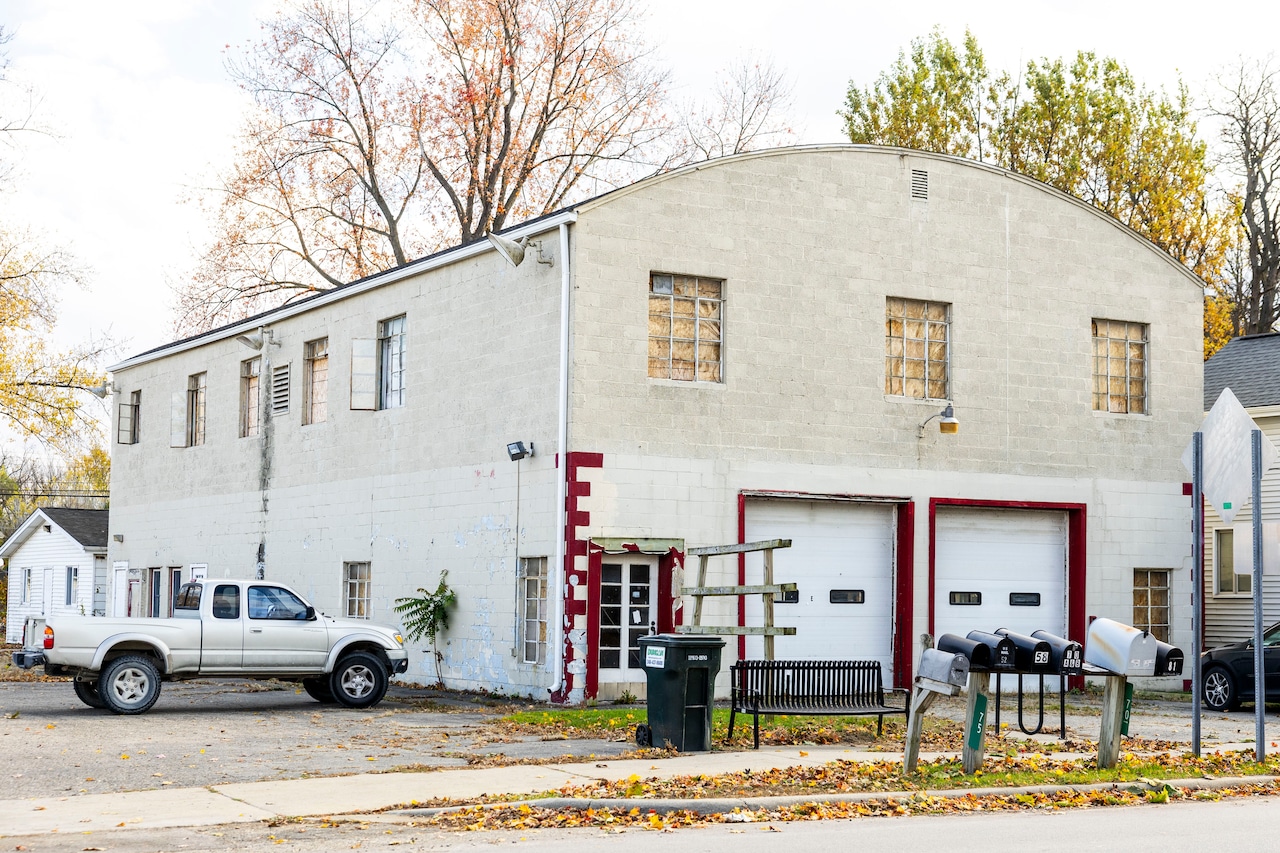Copyright M Live Michigan

WASHTENAW COUNTY, MI — When they sold a 1940s-era fire hall to be redeveloped, officials in a Washtenaw County township failed to formally disclose a potential roadblock to the purchaser. Under the former fire station near the heart of Whitmore Lake, a residential hamlet north of Ann Arbor, an old heating oil tank had leaked into the soil. Some of the contamination remained when Northfield Township sold it in 2022 for $110,000. More than three years later, it’s coming back to haunt township officials, who acknowledge the pollution wasn’t noted in writing to the developers during the sale, as is normally expected in a real estate transaction. Now, it could complicate plans from purchaser B&J Real Estate Investment LLC to turn the building into apartments, saving it from demolition. “This was not disclosed and now all the sudden we have this surprise,” said Jason Ibrahim, one of the developers with B&J, during an Oct. 28 township board meeting. “We have a lot of money invested into this thing.” Ibrahim and his partner Soamer Jamil, a Whitmore Lake business owner, have asked the township to cover the cost of further environmental testing and for relief on completion deadlines in a development agreement with the township. So far, township leaders haven’t agreed, with a motion to foot some of the costs failing by a split vote Oct. 28. Some of them say the pollution was no secret, and they weren’t trying to conceal it. In an email to MLive, Jamil said he and his partner still believe the township bears responsibility. B&J is still moving forward with the apartment project, he said, and plans to address payment for environmental testing “at a later time once we get all our facts together.” Contamination was public knowledge, township says Some township officials have pushed back on the request to use public coffers to cover further environmental work at the fire hall, a concrete, hangar-like building located at 75 Barker Road. There’s reason to believe the developers should have known about the contamination, publicly discussed at township board meetings over the years, they say. “My assessment is that the failure to formally disclose was not due to a deliberate effort to deceive, but rather by a rush to complete the deal. The Township was attempting to do the right thing,” township Manager Douglas McDonough wrote in an Oct. 22 memo summarizing the history of the property. McDonough wasn’t employed by the township at the time of the sale. But, he wrote, the fate of the fire hall has been a hot topic over the years, with its board of trustees entertaining interest from multiple potential buyers, before moving ahead with B&J. Others backed out mainly because of environmental concerns, per McDonough’s memo. The soil contamination at the building stems from the underground heating oil tank, removed by the township in 2012. An environmental assessment officials commissioned in 2020 found soil still contaminated with polycyclic aromatic hydrocarbons, a class of chemical pollutants that can stem from oil, according to township documents. Northfield paid to have some of it removed, but more remained as the pollution extended under the building and a nearby driveway, making full excavation more difficult and risky to the fire hall itself. The township was poised to demolish the building in 2022, before reversing course and approving the sale to B&J. Under an agreement with the township, B&J has to hit certain development milestones for the project or the township could repurchase and demolish it. The aging 1940s fire hall, built from spare materials for Whitmore Lake’s first volunteer fire department, was in poor condition when sold. “This was a public topic, and my initial research indicates that it is highly unlikely that the purchasers did not understand the level of disrepair in the building,” McDonough wrote in his memo. Officials documented disclosing an asbestos survey of the building to B&J. A prior township supervisor, Ken Dignan, also maintains he talked with the purchasers about the underground tank remediation, but this conversation is not officially documented, according to McDonough’s memo. More may have been required. Sections of state environmental law mandate written disclosure of hazardous environmental conditions during a property sale, according to a summary from the Michigan Department of Environment, Great Lakes and Energy, or EGLE. It’s unclear exactly how the law applies to the case of the fire hall. EGLE doesn’t regulate real estate transactions and isn’t currently in possession of any records that would indicate the property qualifies as a contaminated site under the relevant law, like those showing a toxic release from the storage tank above the state’s residential cleanup criteria, according to agency spokesperson Josef Greenberg Stephens. Attorneys for the township have noted that B&J was represented by a real estate attorney during the transaction and the developers had the option to conduct their own environmental assessment during the sale but appear not to have done so. Jamil said he first became aware of the soil contamination when developers had an initial environmental assessment completed “a couple months ago.” The purchase agreement he signed didn’t reference the soil contamination, stating there was “no significant adverse fact or condition” that might affect the purchaser’s intended use. But it also offered the property “as-is.” “The township did not at any time withhold information or try to deceive the purchaser,” township Attorney James Fink said during the Oct. 28 board meeting. In an emailed response to questions from MLive, McDonough also pointed to environmental documentation B&J submitted to the township with a site plan for its apartment project, which officials ultimately approved in 2024. He said it shows the developers were aware of the contamination as early as March 2024, more than a year before the current requests for the township to cover extra testing costs this October. “Common knowledge is not the same thing as a disclosure prior to our purchase agreement closing date,” said Jamil, with B&J. “Even if they supplied it during our site plan, that was well after our purchase date.” Township leaders split on paying for environmental testing Some Northfield leaders say they believe the township should take some responsibility for the contamination. “I just think there was a wrongdoing by the township of not disclosing it,” township Trustee Adam Olney said during the Oct. 28 board meeting. “If we thought it was important information to disclose asbestos, I don’t know how we missed disclosing contaminated soil,” he said. The Northfield board ultimately voted Oct. 28 on a motion to pay for a property environmental assessment, as B&J requested, necessary to advance further cleanup. It failed 2-3, with Trustee Janet Chick abstaining. Olney and Treasurer Jacqueline Otto voted yes, while Supervisor Larry Roman and trustees Jacob Donner and Nathan Muchow voted no. When asked for an interview, Roman deferred to McDonough. Initial field work to complete a cleanup could cost about $16,000, according to an email with a consultants’ estimate included in meeting documents. Olney said later in the meeting he was concerned the issue could be litigated in the future and wanted to avoid the potential for the township having to reimburse the purchasers for their expenses incurred so far and the demolition of the building. Others pushed back. “I’m not going to throw money at someone because they come in here asking,” Muchow said.



